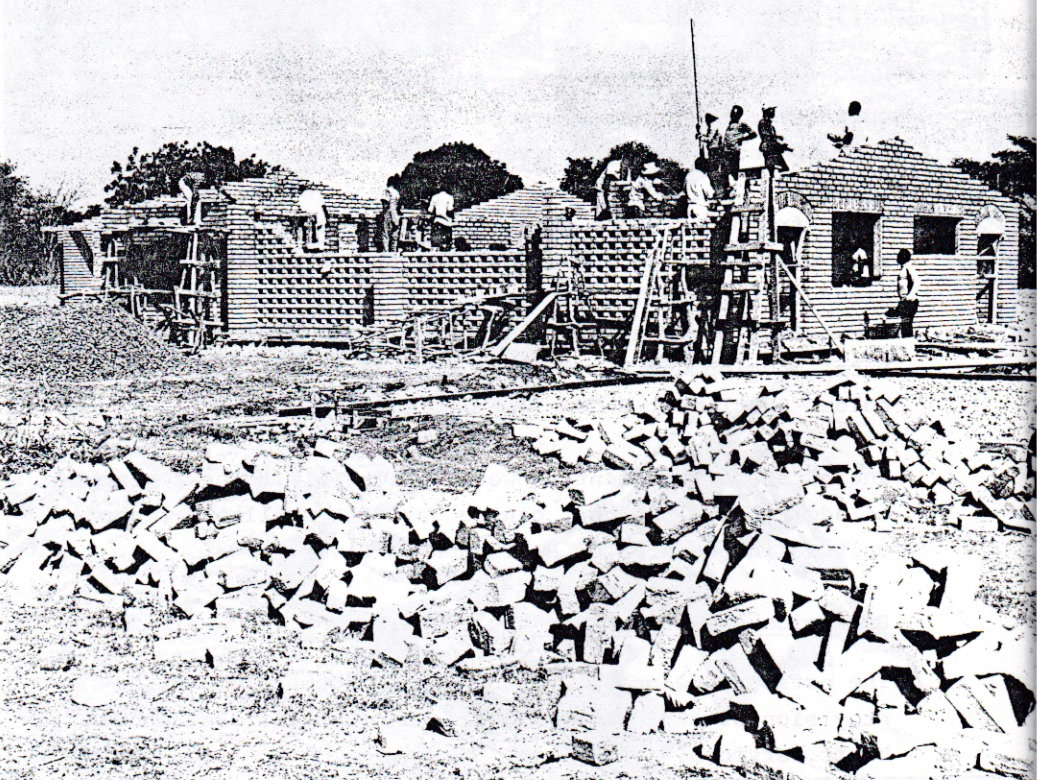
New school block under construction at Mbalachanda Centre – foto © marianne schellenberg
by gerhard gross and jörg haas
From 1978 to 1987 Werner Schellenberg was working as Chief Architect for the Rural Growth Centres Project in the Office of The President and Cabinet, (OPC) – Lilongwe, Malawi. He designed and co-ordinated the site and layout planning, was in charge of building and infrastructure design, the preparation of bill of quantities, the budget planning and the direct labour implementation principles for all physical works of 14 Rural Growth Centres in Malawi. He also established the project’s direct labour unit (construction unit) and monitored the unit’s work schedule and support services for the effective and timely implementation of all construction works implemented under the programme.
The Rural Growth Center Project (RGCP) was a German development cooperation project initiated by the Federal Ministry for Economic Development and a working group between the Society for Technical Cooperation (GTZ) and APFEL GmbH, Berlin, in cooperation with the Malawian government was implemented between 1978 and 1988. The project, which was started as a pilot project, pursued the goal of using supply centers to improve living conditions in rural areas, to reduce spatially disparate developments and to halt the migration process to the cities. The attempt to relate the allocation of economic, social and technical functions to the complexity of the socio-spatial nature of a region in an integrated project approach requires in particular the coordination of the action and decision-makers and the bundling of all sectoral measures. After initial successes, the establishment of a comprehensive network of “rural supply centers” in Malawi has been declared a national program.
Looking back from 2021 to Werner Schellenberg’s work in this 10-year long project it appears that it was there that he gained experience in many fields which he could use and develop further in his missions as Shelter Advisor to the UNHCR and Welthungerhilfe in the following decades:
-
- thorough analysis of project (centre) locations
- involvement of local stakeholders and beneficiaries
- use of self-help contribution of local communities
- flexibility in the planning and implementation process
- integrated, long-term oriented planning concept
- pragmatic approach to building design and technical infrastructure
- close cooperation with relevant government agencies at the national and regional level
- integration of design and impelementation processes
More Information on the Rural Growth Centre Project(EN)
Information zum Projekt Ländliche Versorgungszentren (Deutsch)
Werner Schellenberg in the Rural Growth Centre Project